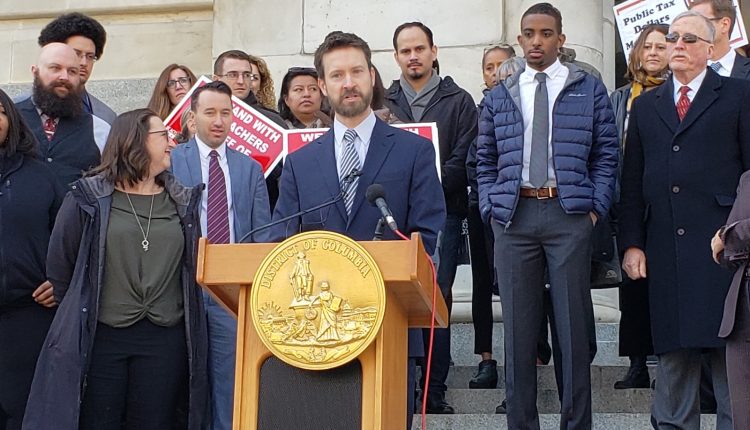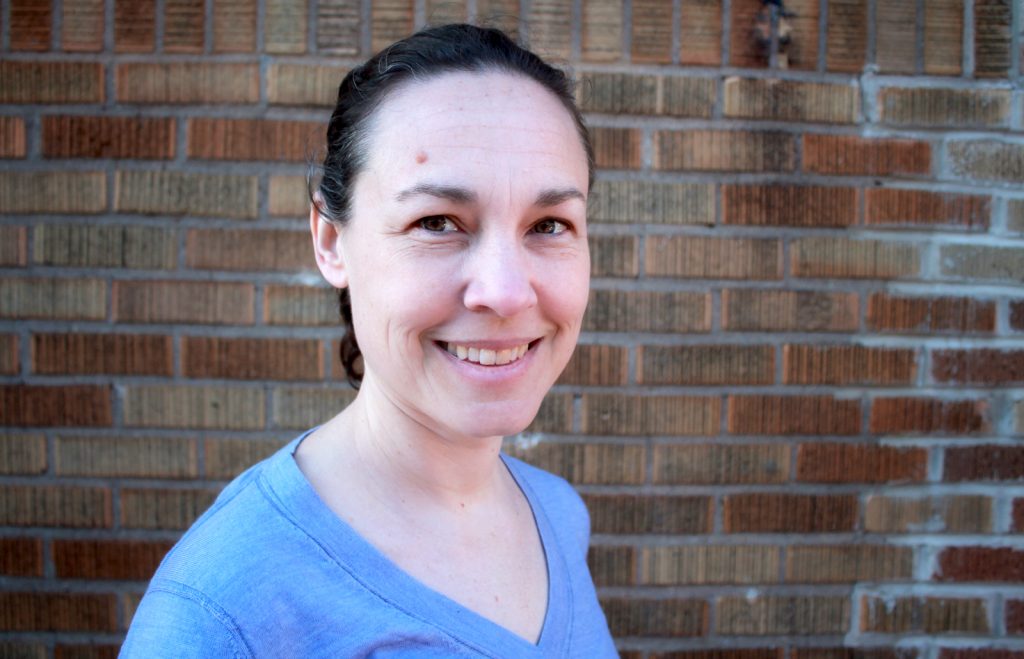
Mikey Weidman: Requiring more transparency at charter schools will help parents make informed choices
In an effort to bring greater transparency to DC’s public charter schools, Ward 6 DC Council member Charles Allen and four of his colleagues last week introduced the Public School Transparency Amendment Act of 2019. The legislation would open charter schools’ board meetings to the public, give teachers seats on charter school boards of trustees, and require charter schools to comply with the same open records laws that apply to traditional public schools in the District.

As a charter school parent, I welcome this legislation. These measures would ensure that charter schools — which are publicly funded but independently operated — are accountable to families for the decisions they make and give teachers an essential stake in schools’ decision-making.
I’ve had a child in a charter school for five years, but it wasn’t until this year that I learned that DC charters don’t have to comply with the same open meetings and open records laws that DC Public Schools (DCPS) must follow. It surprised me. The District’s school choice system gives me the responsibility to make informed decisions about which school I want my children to attend, and I need to be able to evaluate whether my children’s school is making decisions that prioritize kids and teachers. Allowing closed board meetings and exempting charters from open records laws tells parents that we don’t deserve to know how our children’s schools are run. All parents — in fact, all taxpayers — should expect more from public schools.
The bill proposes reasonable transparency measures that DC has already deemed appropriate for its traditional public schools. In DCPS schools, for instance, parents can attend meetings of the local school advisory team, or LSAT — a group of teachers, parents and community members that advises the principal on matters like budgeting, resource allocation and goals for the school. Even if parents can’t attend a single LSAT meeting, the simple fact that these meetings are open to the community and include diverse representatives from the school community instills confidence in the integrity of the school administration’s decision-making process.
Shielding charter schools from standard transparency protections, as our current law does, has the opposite effect. I don’t doubt that the majority of charter school boards (including that of my children’s school) are made up of well-intentioned individuals who have kids’ and families’ best interests at heart. But families should not have to wonder what is going on behind closed doors, or question whether they can trust the priorities of the people who are running a school. Families have many different reasons for choosing charters, but it’s safe to say that no family opts for a charter school because they want to have less information about administrative decisions.
The common-sense fairness of applying open meetings and open records laws to charters and traditional public schools alike is clear from the number of other jurisdictions that do it. Thirty-nine states require all of their public schools, both charter and traditional, to comply with open government laws. Despite concerns expressed by some charter advocates in DC, the National Alliance for Public Charter Schools endorses charter school compliance with these laws, and initial research by EmpowerEd suggests that charter schools in other jurisdictions have not found these requirements burdensome. This bill is a reasonable proposal that would bring the District’s expectations for charters in line with the solid majority of states.
Council member Allen’s bill would also require seats for two teachers on each charter school’s board. This proposal is particularly important to me as a parent, because teachers play by far the most significant role in my kids’ education, and I have seen firsthand the costs of high teacher turnover. Giving teachers a real stake in decisions that affect them — and their students — is a fair and effective way to make sure that charter schools take teachers’ perspectives into account, and will help schools retain experienced teachers. Preserving the rich relationships teachers build with students and families over time makes schools more sustainable.
The council will surely hear from organized charter school interests, some of which have already criticized this legislation. But those organizations do not represent parents. Charter parents are an incredibly diverse group; we don’t speak with one voice, and we don’t have our own lobby. To understand how this legislation matters to families, both charter and DCPS, the council should hold a hearing to hear from families directly.
I believe that well-regulated, well-administered charter schools can play a valuable role for students and families in DC, but transparency, public accountability and teacher involvement in decision-making are essential to a fair, high-quality charter system. The Public School Transparency Act would help align the District’s laws with families’ expectations, build trust, and make all of our schools stronger.
Mikey Weidman is an attorney and lives with her family in Ward 1. Her two children attend a charter school.
About commentaries
The DC Line welcomes commentaries representing various viewpoints on local issues of concern, but the opinions expressed do not represent those of The DC Line. Submissions of up to 850 words may be sent to editor Chris Kain at chriskain@thedcline.org.


Comments are closed.